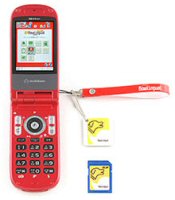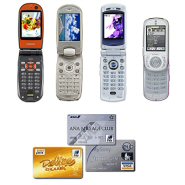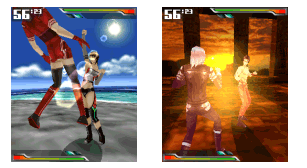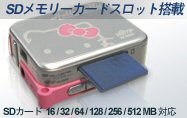Vodafone K.K. Applies for 1.7GHz W-CDMA 3G Field Test License
Vodafone K.K. announced that today it has applied to the Ministry of Internal Affairs and Communications for licenses to operate W-CDMA experimental radio stations on the 1.7GHz frequency band, marking the first time in Japan for an existing 3G mobile operator to apply for a field test license on this frequency band. After receiving a field test license, Vodafone K.K. plans to conduct field tests for approximately 6 months in Chiba prefecture to investigate radio wave propagation characteristics and building shadowing effects, as well as measure in-building penetration loss while operating on the 1.7GHz frequency band.


 Mobile content distributor
Mobile content distributor  Impulse credit card purchases are set to take a frighteningly mobile turn in Japan after NTT DoCoMo and the Sumitomo Mitsui Financial Group ended several days of speculation to
Impulse credit card purchases are set to take a frighteningly mobile turn in Japan after NTT DoCoMo and the Sumitomo Mitsui Financial Group ended several days of speculation to  DoCoMo ruled 2004 with their 900i-series 3G phones and exclusive Final Fantasy VII spin off game ‘Before Crisis’ but spring 2005 belongs to KDDI. Japan’s leading 3G carrier has just whipped out a whole new posse of BREW-based mobile multiplayer games for their WIN CDMA 1X 3G handsets: Bandai’s Gundam (Kidousenshi Gundam 3D Meguri Ai Sora Hen); Bomberman 2 from Hudson; Armored Core; Ace Combat by Namco; Sega Rally; Street Fighter II and more. In February, KDDI launched
DoCoMo ruled 2004 with their 900i-series 3G phones and exclusive Final Fantasy VII spin off game ‘Before Crisis’ but spring 2005 belongs to KDDI. Japan’s leading 3G carrier has just whipped out a whole new posse of BREW-based mobile multiplayer games for their WIN CDMA 1X 3G handsets: Bandai’s Gundam (Kidousenshi Gundam 3D Meguri Ai Sora Hen); Bomberman 2 from Hudson; Armored Core; Ace Combat by Namco; Sega Rally; Street Fighter II and more. In February, KDDI launched  Here kitty, kitty. The Sanrio Hello Kitty
Here kitty, kitty. The Sanrio Hello Kitty